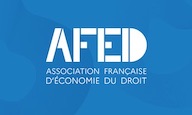Using data from easyJet, Ryanair and Southwest, we show that for their flights these airlines set a sequence, based on the seats' order of sale, of non-strictly monotone increasing fares. A model where prices cannot be continuously adjusted due to organizational frictions and technological bottlenecks provides a theoretical justification for the use of price sequences. Consistent with the model's main assumption, the evidence indicates that fare sequences remain unchanged for long periods, lasting on average 35 hours. Furthermore, the model's prediction that an entire fare sequence should shift upward following a positive demand shock is tested using a natural experiment involving flights that could transport soccer's supporters travelling to France during the UEFA European Championship in 2016. Such shifts are clearly observed for treated, but not for control, flights after the shock date. The relevance of such a finding for the investigation of antitrust cases is discussed.
- Poster

 PDF version
PDF version

